- Home
- Patrick Robinson
U.S.S. Seawolf am-4 Page 39
U.S.S. Seawolf am-4 Read online
Page 39
He was talking to Rick Hunter right now, expressing his concern over the condition of Brad Stockton, who had been savagely interrogated, mainly because the Chinese thought he was the most senior man in the crew, aside from the CO.
“I wouldn’t worry too much, sir,” said the SEAL leader. “We have a Navy doctor who specializes in torture-type damage in each of the submarines. They’ll get him fixed up. Anyway, we’re making the transfer to the carrier within a very few hours, and there’s a full-blown hospital in there.”
Judd Crocker nodded, and Rick Hunter asked suddenly, “Was it bad, sir?”
“Well, it wasn’t great.”
“What did they want from the crew members?”
“They really wanted information. But they wanted it in a very specialized form…you know, they wanted a guided tour of the combat systems by Lieutenant Commander Rothstein. I expect you know this, but these are among the most complicated systems on the ship…and while they would certainly be able to copy them, make plans, and for all I know, remove certain parts, there’s nothing like having the man who works them in your corner.”
“No, I guess not…so those little bastards really wanted to get ahold of all of our specialists on the ship, and get them to spill the beans on all the subtleties of the electronics — so they could make a submarine of the same standard as Seawolf…?”
“Lieutenant Commander, you have it right there.”
“Jesus Christ, cunning little bastards…but what I don’t know is how they managed to capture the submarine in the first place, sir…what happened?”
“Well, it might be classified, but since ten thousand Chinamen and more than one hundred crew and half of SUBPAC know, I guess there’s no harm in my enlightening the officer who rescued us…”
Rick Hunter chuckled in his deep, quiet Kentucky manner. “In any event, sir, you may count on my discretion…we’ll say it was passed on under the ‘need to know’ syndrome, since we’re not out of this fucking hellhole quite yet.”
Judd Crocker laughed. “May I call you Rick?”
“Of course.”
“Well, Rick, I am about to impart to you a brief shining example of a monumental snafu. On a dark night, way out there in the South China Sea, we managed to wrap our propeller hard around the long towed array of a six-thousand-ton Chinese destroyer.”
“Holy shit!”
“To the best of my recall, those may have been my own precise words when I realized what had happened.”
“Did you have the conn, sir?”
“Hell, no, I was asleep. I’d just come off watch.”
“How’d you find out?”
“Are you kidding? When something like that happens in a big nuclear boat, everything suddenly changes. You lose propulsion and it goes kinda quiet, the trim changes, and machinery sounds that you all live with all the time are suddenly different, even the angle of the boat is different…”
“Who had the conn, sir?”
“That, I am afraid, is classified. But the truth will in the end come out, I’m sure of that.”
“Do you think there will be a Navy inquiry?”
“Christ, yes. A full one first, listening to the evidence of everyone, plus his wife and his dog. That’ll take God knows how long. And there’ll be a recommendation, if they think someone failed in his duty: possibly that certain officers of Seawolf were guilty of gross negligence, perhaps even leaving their place of duty in the face of the enemy…”
“You mean they may court-martial you, sir?”
“They just might. Unlikely, but possible. Any commanding officer who manages to lose his ship faces deep trouble. But in the light of the evidence, I hope they will find me not guilty…”
“I would, sir.”
“Thank you, Lieutenant Commander. I hope they’ll be as understanding.”
“Well, if they’re not, I’ll come forward and tell ’em you took out the armed camp commandant singlehanded right there in the death cells.”
“Don’t do that, for Christ’s sake. Some left-wing politician would probably want me charged with murder under the new Act to Prevent Unreasonable Cruelty to Far Eastern Dwarves.”
Both officers laughed, although somewhat grimly.
0430.
On board the destroyer Xiangtan.
111.29E 21.13N.
Course zero-six-zero. Speed 30.
Colonel Lee Peng was mainly concerned about his orders. Personally issued by the Commander-in-Chief, they were coldly specific: “Seek and pursue any suspicious vessel in the area six miles due south of Xiachuan Dao. You have authority to open fire on, and sink, any United States naval vessel in national waters, or, in hot pursuit, in international waters.”
And now he stood on the bridge, continuing a short conference with his executive officer, Lt. Commander Shoudong Guan, and his combat systems chief, Lt. Commander Anwei Bao. And the discussion bore a somewhat fatalistic edge.
All three of the senior officers on board knew that the main trouble with the American Navy is that it is likely to hit back, very fast and very hard. They also knew that even if they managed to get helicopters up and were able to blitz the Americans with depth charges, depth bombs and maybe even torpedoes, an American SSN could still fire three or maybe even four torpedoes right back, hard and accurate. They’d keep well clear. And privately, all three of the Chinese officers thought that to open fire on a big, fast American warship of any kind was something very near to suicide.
Colonel Lee, however, was adamant. “The C-in-C left no room for manuever,” he said. “He told me to open fire and sink it.”
“Did he have a view about losing the best surface ship in our Navy?”
“No, Guan. He did not. He seemed not to listen, or at least not to hear. Then he told me the honor of my country was at stake. The only thing that mattered, both to him and to his masters in Beijing, was that we hit and sink a major American submarine. And he was certain there was at least one out there, possibly two…”
“Well, he may not know it, but I do,” replied Lieutenant Commander Anwei. “The Americans, if we find them, will hit back. Like mad dogs, probably. I think a lot of people may die out there this morning.”
“Have you considered the possibility of just ignoring everything and denying we ever saw anything?”
Colonel Lee smiled. But he said, “My old friend Guan, I must be honest. Yes, I have. But consider those consequences. It would be known that we saw something, possibly overhead, certainly among this very large crew. If we were to turn a blind eye in the face of the enemy, the entire senior command of this ship would be ‘disappeared,’ possibly jailed for life in national disgrace…I think we would all prefer to take our chances with American retribution, and return as heroes.”
“Hopefully not in a coffin,” replied Guan. “Anyway, we may not see anything.”
“Indeed.”
“Anyway, how do we look now, navigator…?”
“We’re fine, sir. Making very good time, just approaching longitude 111.30, just a little less than two hours to go, sir. This is a very fast ship. We’ll be in the area at a little before oh-six-thirty at this speed.”
1530 (local). Sunday, July 16.
The Oval Office.
It was the first time in living memory that anyone had marched along the corridor and just barged straight into the President’s private office without even knocking, regardless of who might be in there. Even President Clarke’s secretary was slightly taken aback as Arnold Morgan made his entry.
The Chief Executive, unused to being interrupted this brutally, was on the phone and looked annoyed until he saw who it was, and noticed the broad smile on the face of his National Security Adviser.
He just dropped the telephone, quite literally on the floor, and left it dangling there. And he stood up and said in a tremulous voice, “Tell me he’s safe, Arnie. Please just tell me he’s safe.”
“He’s safe, sir. On board the nuclear submarine USS Hartford, under the command of
Commander Jack Crosby. They’re on their way back to the carrier, USS Ronald Reagan. Linus is shaken, but unharmed. He sent you his love via the satellite.”
President Clarke almost collapsed with relief. He sat back in his chair and just kept saying, over and over, “Thank God…Thank God…Thank God…,” and he let the tears stream down his face. He was too happy to stop them, too joyful to care.
Admiral Morgan just said, gruffly, “You need me anymore, sir? We’re still pretty busy on this. I was going over to the Pentagon…”
“No, Arnold. No, I’m fine now. You go right ahead. But could you ask Kathy to come in and see me, soon as you’re on your way…”
“Sure, sir. Maybe catch you a little later?”
“Arnie, I sure hope so. If it hadn’t been for you…for your belief in our ability to hit back…I don’t think I would ever have seen Linus again…”
“Thank you, sir. God bless you, and Linus. I’ll send Kathy right over.”
The admiral left the office as brusquely as he had entered. He marched back down the corridor and said to Kathy, without breaking stride as he passed her desk, “Coffee. Car. Go see the boss.”
Then he moved back into his own office and called Admiral Mulligan. It was 0445 tomorrow in the South China Sea, a quarter to four in the afternoon in Washington.
“Hi, Joe. How do we look?”
“According to Frank Hart, the SEALs should be leaving the island right now with the second and final group of crewmen, all eight boats…starting to take off some of the Special Forces. Their ETD Xiachuan for the second run out to the submarines is 0445, their time. No one is reporting any Chinese activity within a fifty-mile radius of the transfer zone four miles south of the beaches.”
“Hey, that’s great, Joe. What time do they estimate the last guys get away?”
“Frank’s saying oh-five-fifty-five. Which is almost dawn.”
“Hmmmmm. That puts the last transfer in daylight, right?”
“Fraid so. But we do not really expect a Chinese attack.”
“Don’t you? I wouldn’t put anything past those little pricks. ’Specially when they’ve had their noses put out of joint, as they most certainly have.”
“Well, we can only keep watching, sea and air. Anything shakes loose, I’ll call you…”
“No need, Joe. I was just coming over to see you. Get some decent coffee ready, will you? Kathy’s ignoring me.”
The CNO laughed as he put down the phone. And almost immediately Admiral Morgan’s internal line rang.
“Outer desk to base. Coffee one minute. Car downstairs. Over and out.”
The admiral hit the intercom button and snapped, “Base to outer desk. Cancel coffee. Meet me in our favorite Georgetown restaurant at nineteen-thirty. Will you marry me?”
“Outer desk to base. Lovely to the first. No to the second. I love you. Over.”
The admiral gathered up his briefcase and headed out, marching down to the elevator that would take him to the underground garage where his chauffeur, Charlie, would be waiting if he valued his life, job and pension.
Kathy, meanwhile, was in the southwest corner of the West Wing, entering the Oval Office.
“Hello, sir,” she said. “I’m so happy for you. Isn’t it the most marvelous news?”
“The best possible,” said the President, and the future Mrs. Arnold Morgan noticed that he looked about 10 years younger than he had an hour previous.
“But now I want you to do me two favors.”
“Of course.”
“I want you to arrange for the church across the street in Jackson Place to be open, and please inform the Secret Service that I am planning to walk over there in the next half hour. Tell ’em to make whatever arrangements they need. Second, I would like you to come with me — I expect you remember we were together when my prayers were answered. And I would like us to walk to church together.”
“Well, yessir, I do of course remember. There’s a morning service at St. John’s, sir. And an evening one. I’ll make sure it’s open in the next half hour.”
She left the office and returned to her desk. A longtime White House staffer, she knew precisely the right buttons to press. And she hit the line to the usher and requested that someone contact St. John’s Episcopal Church and ensure that it was empty, open and ready to receive the President of the United States, as it had received every President since James Madison.
The next call, to the Secret Service, was more serious, because the prospect of the President walking anywhere in public is apt to hit them like an ice storm in Tahiti. A lot of people need to be alerted, since the White House grounds are swept at all times by infrared, electronic eye, audio and pressure sensors. Video cameras on the roof and all over the grounds record every movement. There is actually a full SWAT team positioned on the White House roof, machine guns drawn, every time the President enters or leaves. And that assumes he’s traveling in a bulletproof car.
The mere prospect of the President, in the company of the secretary to the National Security Adviser, walking to church was cause for a major operation. To a Secret Service agent, the 300 yards from the north corner of the West Wing to St. John’s represented something close to the Pope crossing a minefield. In fact, the President would be crossing a quiet private road, closed to all traffic and patrolled at all times by squadrons of police.
But when Kathy O’Brien announced that the President was walking to church, about 140 people went into full alert, as would be expected in a gigantic fiefdom that costs upward of a billion dollars a year to run. Guards were detailed to surround and accompany him every yard of the way, from the front door of the Earthly God to the open door of the Greater God.
They set off together at a quarter to five, walking through the corridors of the West Wing and then stepping out into the hot, sunlit 18-acre gardens, where there awaited more armed men than there were on the evacuation beach at Xiachuan.
Surrounded now by the protectors of the President, they strolled up through the lawns and across the private road into Jackson Place on the west side of Lafayette Square. And from there it was just a few yards more to the pale yellow-painted Georgian church with its six tall white columns and three-tiered tower.
The door to the empty St. John’s was wide open, ready to welcome the President of the United States on a private visit. When they arrived, he ordered everyone to remain outside, while he and Kathy walked in and closed the main door behind them.
And there in the cool half-light of the 190-year-old church, “the Church of the Presidents,” John Clarke humbled himself before his God, kneeling quietly next to Kathy O’Brien in the front row of the left-hand pews and silently expressing his ineradicable gratitude for the safe delivery of his only son, Linus.
His prayer was, he said, not just thanks, but a formal recognition that his “still, small voice” had been heard above the tumult of a world of sins. It was, he believed, an affirmation of his faith, the faith with which he had been brought up by his Baptist family in faraway Oklahoma.
He remained kneeling for perhaps 10 minutes, and then he turned to Kathy O’Brien and asked if she was ready to accompany him back to the White House.
They both stood and walked back down the dark red carpet of the left aisle. At the door, before he opened it, John Clarke said quietly, “I am not the President of anything in here, am I?”
“No, sir. No you’re not. But I am sure you are welcome, because God gets many more requests for help than He ever does expressions of thanks. And it was St. John himself who wrote the words of Our Lord, “I am the way, the truth, and the life.”
And there was a smile on the face of the Chief Executive as he walked back to the White House with a clear conscience.
0555. Monday, July 17.
On the beach. Xiachuan Dao.
As the senior officer in the evacuation, Captain Judd Crocker elected not to leave the island with the second flotilla, but rather to wait for the final boat and travel in the cold light
of dawn with Lieutenant Commander Hunter and Ray Schaeffer.
And there were already orange fingers of light out over the water as the eastern sun fought its way above the horizon. They could not yet see the five Zodiacs making their way across the bay, but they could hear a distant growl of outboard engines, moving very fast over the flat calm water.
Three minutes later the SEAL drivers came charging into the beach, a new note of urgency obvious in their attitudes as they cut the motors and hauled up the engines, while the SEALs in the shallows grabbed the painters and hung on to the boats. There was no need even to spin them around away from the waves now, because the ocean was like a pond.
The lead driver came in yelling, “OKAY, SIR, LET’S GO…all equipment in the second boat plus three…seven in each of the others…we’re outta here.”
The light was having a nerve-wracking effect on everyone. Surely the Chinese could not now be unaware, somehow, that a diabolical attack had occurred on their heavily manned jail, even if the SEALs had wrecked every possible communications system. No one expected a counterattack by night, but this was different. The cloak of darkness was gone, and everyone on the beach felt very vulnerable as the light grew stronger.
The very least the Chinese Navy must do would be to send a couple of helicopters in to find out why they could not contact the jail anymore. If those choppers arrived in the next five minutes they would surely open fire on the fleeing Americans.
“COME ON, YOU GUYS…LET’s GO! GO! GO!”
The lead driver, veteran Petty Officer Zack Redmond, was growing more jumpy by the minute. And he was not alone. Olaf Davidson was in the water, manhandling the machine guns into the boats. Buster and Rattlesnake were up to their waists, shoving men up and over into the boats.
When it was Rick’s turn he stood next to them and bent his left leg at the knee, and the two SEALs grabbed his tree-trunk shin and lifted. The world’s largest jockey thus vaulted over the gunwales like Bill Shoemaker at Santa Anita.

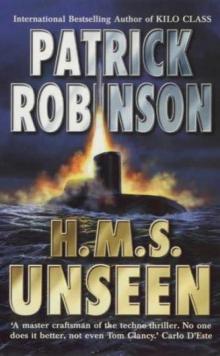 H.M.S. Unseen am-3
H.M.S. Unseen am-3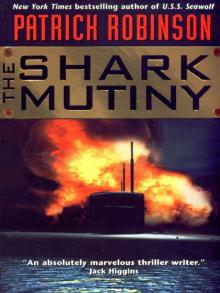 The Shark Mutiny (2001)
The Shark Mutiny (2001)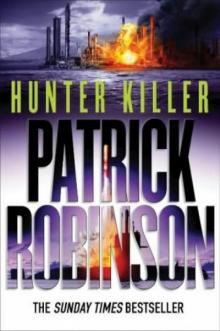 Hunter Killer am-8
Hunter Killer am-8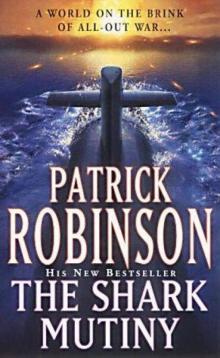 The Shark Mutiny am-5
The Shark Mutiny am-5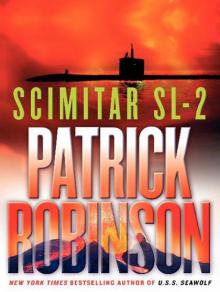 Scimitar SL-2
Scimitar SL-2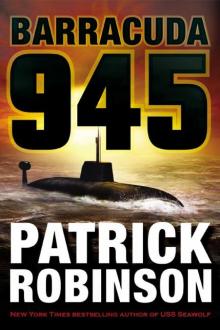 Barracuda 945 am-6
Barracuda 945 am-6 Hunter Killer
Hunter Killer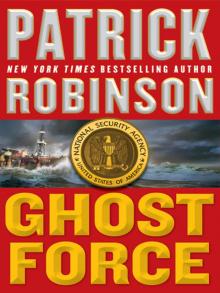 Ghost Force
Ghost Force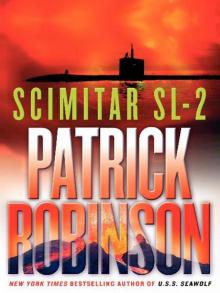 Scimitar SL-2 (2004)
Scimitar SL-2 (2004)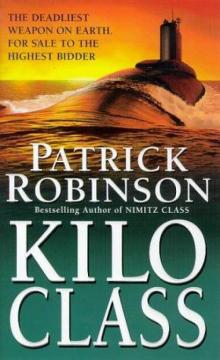 Kilo Class am-2
Kilo Class am-2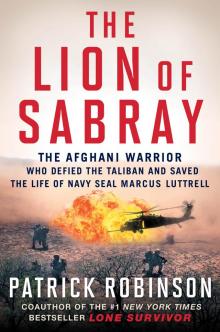 The Lion of Sabray
The Lion of Sabray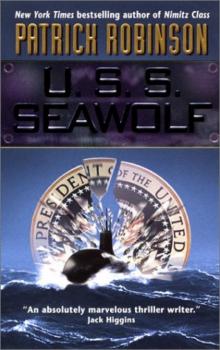 U.S.S. Seawolf am-4
U.S.S. Seawolf am-4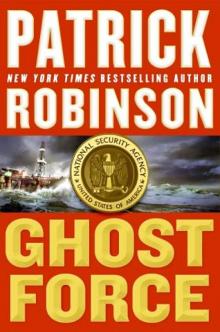 Ghost Force am-9
Ghost Force am-9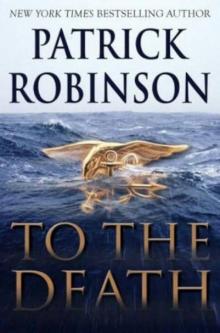 To the Death am-10
To the Death am-10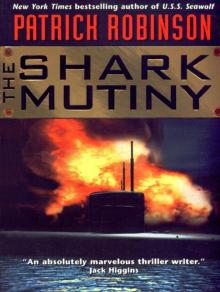 The Shark Mutiny
The Shark Mutiny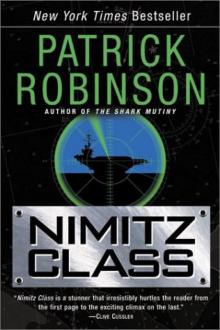 Nimitz Class am-1
Nimitz Class am-1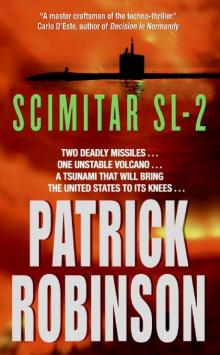 Scimitar SL-2 am-7
Scimitar SL-2 am-7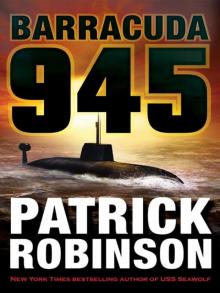 Barracuda 945
Barracuda 945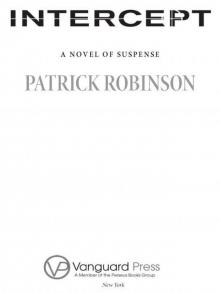 Intercept
Intercept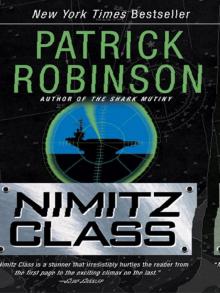 Nimitz Class (1997)
Nimitz Class (1997)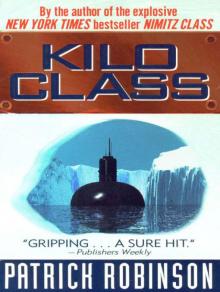 Kilo Class
Kilo Class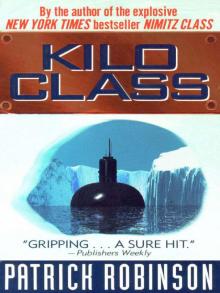 Kilo Class (1998)
Kilo Class (1998) Diamondhead
Diamondhead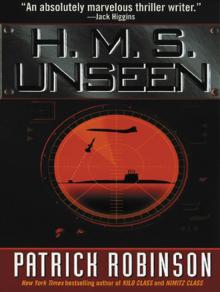 H.M.S. Unseen
H.M.S. Unseen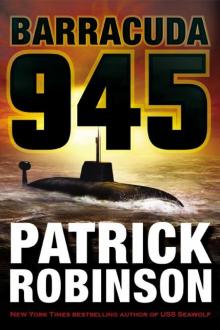 Barracuda 945 (2003)
Barracuda 945 (2003)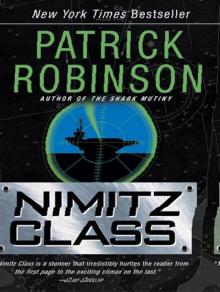 Nimitz Class
Nimitz Class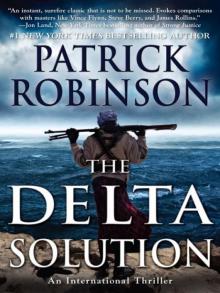 The Delta Solution
The Delta Solution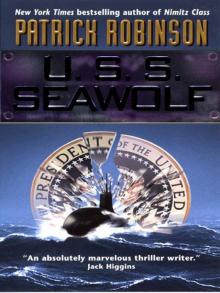 U.S.S. Seawolf
U.S.S. Seawolf